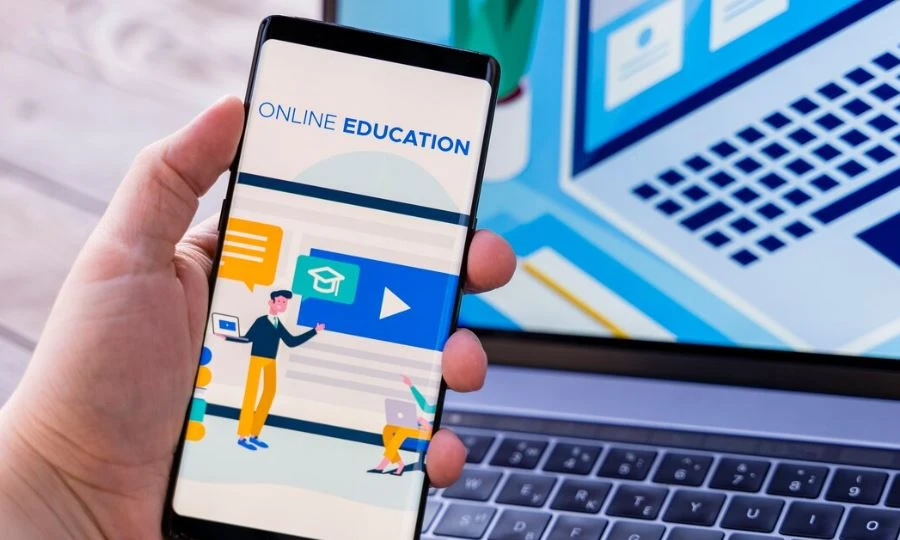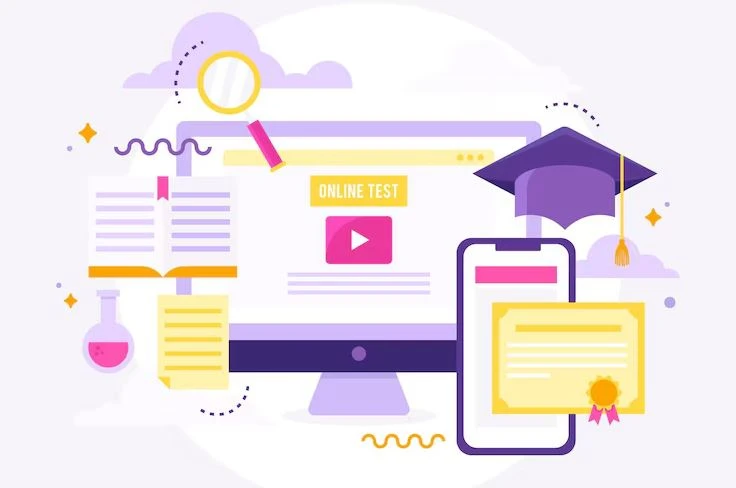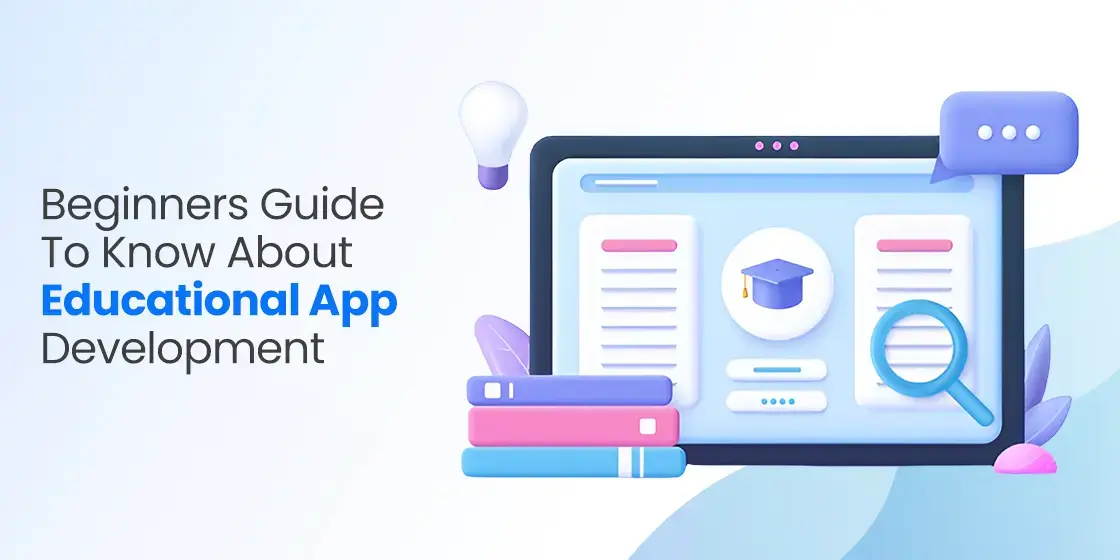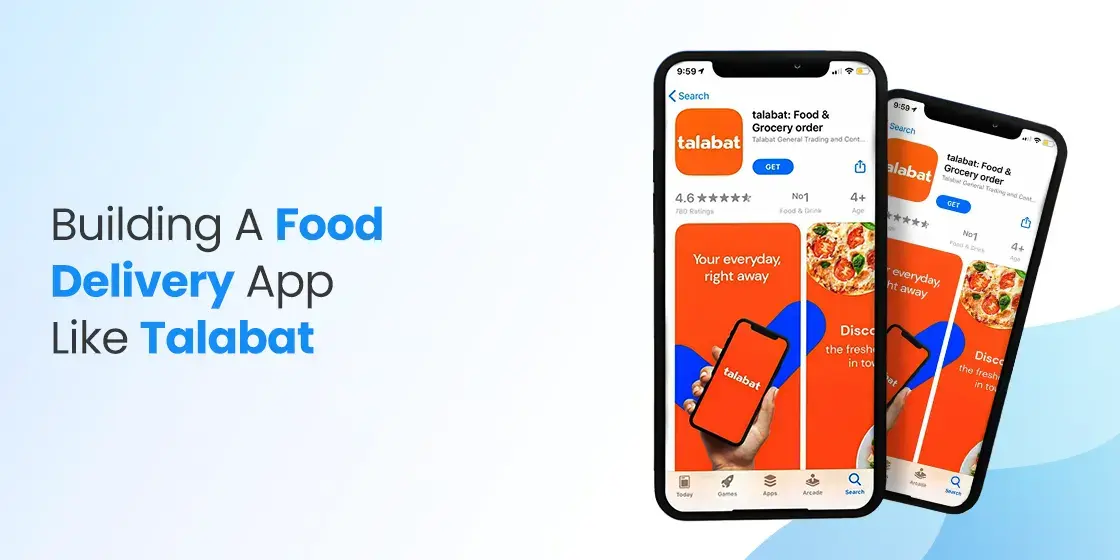Table of Content
Master Online Education App Development With These Basic Tips
The concept of online education has seen a massive rise during the last few years. Many universities and institutions have switched to online classes to accommodate students from a variety of locations. All of this has happened due to the evolution of online education apps. By using these cutting-edge applications, both institutions and students connect easily connect with each other. This is the reason why educational app development is becoming popular in the market, as more and more colleges are building these apps to facilitate their increasing pool of students.
The development of an education app is quite different from the other applications. It is not a standalone solution that provides access to products or services. Instead, it is a complete platform that bridges the gap between schools/colleges and students. It allows them to connect and communicate with each other just like they do in physical settings. These apps are therefore a good choice for those institutions that are looking to facilitate students remotely, precisely those who are sitting in different cities or countries.
To build a quality online education app, you should always take professional app development services. It is ideally a preferred method, however, if you want to build this app internally, you need to first know the basics of educational app development. Read this article in detail to know the key fundamentals of educational app development, as it will guide you through the process right from the beginning.
Why Online Education Apps are Becoming Popular?

Online education apps have gained immense popularity due to their accessibility and convenience. Unlike traditional learning methods, these apps allow students to access educational content anytime and anywhere, removing geographical and time constraints. This flexibility is particularly beneficial for working professionals, students in remote areas, and individuals with busy schedules. Additionally, most online education platforms offer mobile-friendly interfaces, making it easy to learn on the go.
Another reason for their popularity is the variety of learning resources they provide. These apps integrate multimedia elements such as videos, interactive quizzes, and gamified learning experiences to enhance engagement. Unlike conventional classrooms, where learning is often one-dimensional, online education apps cater to different learning styles by offering personalized experiences. Artificial intelligence and adaptive learning technologies also help tailor lessons based on a student’s progress, making learning more effective.
Cost-effectiveness has also contributed to the widespread adoption of online education apps. Many platforms offer free or affordable courses compared to traditional education institutions, which can be expensive. Additionally, users save on commuting, accommodation, and physical learning materials. With the growing number of reputable universities and organizations offering certified courses through these apps, learners can gain valuable skills and credentials at a fraction of the cost, further driving their popularity.
Basics of Educational App Development

Just like ecommerce app development, creating an education app requires proper planning and understanding of the objectives. It is not a platform that is built with a vision to sell services/products to the customers. Instead, it is a SaaS platform that helps to bridge the gap between colleges and students. Let’s take a look how the whole educational app development should be planned effectively.
Project Ideation
The initial phase of developing an online education app involves a comprehensive and in-depth project ideation process. This stage requires thorough research and strategic planning to establish a clear vision for the app. It begins with identifying the target audience, including their age group, educational background, learning preferences, and specific challenges they face in acquiring knowledge. Understanding these factors is crucial in shaping the app’s core functionalities, user experience, and content delivery methods.
Equally important is determining the most suitable platform and technological framework for the app. Whether the goal is to create a mobile-based, or cross-platform solution, the choice should align with user accessibility and engagement. This phase also involves selecting the right educational methodologies to enhance the learning experience. By defining a well-structured development roadmap, the project ideation phase sets the foundation for a successful online education platform tailored to effectively solve users’ learning problems.
Conceptualize App Design
Designing an online educational app requires a user-centric approach that prioritizes functionality, engagement, and accessibility. The first step is to define the target audience, as different user groups such as school students, college learners, professionals, or hobbyists have distinct needs and preferences. The app’s design should align with their learning behaviors, ensuring an intuitive and seamless navigation experience. A clean and minimalistic layout with well-structured content enhances readability and usability.
Another crucial factor in deciding the app design is the incorporation of interactive and engaging elements that improve the learning experience. Features like gamification, progress tracking, discussion forums, and AI-driven personalized recommendations can make learning more dynamic and effective. The user interface should be responsive across various devices, ensuring consistency in performance on smartphones, tablets, and desktops. By combining visual appeal with a practical design structure, an online education app can effectively enhance user engagement and learning outcomes.
Start App Development
After finalizing the design, the next critical step is the development phase, where the actual work of the online education app begins. This stage primarily involves programming and coding, requiring developers to choose the most suitable technology stack based on the app’s functionality and platform requirements. Whether it’s a native app for iOS or Android, a web-based application, or a cross-platform solution, selecting the right coding languages, frameworks, and databases is essential for seamless performance.
Alongside programming, integrating key features that enhance the learning experience is crucial. These features may include video streaming for live or pre-recorded lectures, AI-driven personalized recommendations, and others to boost student engagement. A well-structured learning management system should be embedded to organize course content effectively, ensuring easy navigation for users. Additionally, seamless integration of communication tools like discussion forums, chat support, and virtual classrooms fosters collaboration among students and instructors.
Test the Application
As the development phase nears completion, a thorough and systematic testing process is essential to ensure the app functions smoothly and meets user expectations. This stage involves conducting multiple levels of testing to identify any errors, inconsistencies, or technical issues within the application. Unit testing focuses on examining individual components within the application. Integration testing on the other hand ensures that different parts of the app, such as the backend and frontend work together seamlessly without conflicts.
Beyond identifying and fixing bugs, testing also plays a critical role in optimizing performance, security, and user experience. Load testing is performed to assess how the app handles high traffic, ensuring stability even during peak usage. Security testing is also crucial to detect vulnerabilities related to data protection, preventing unauthorized access and breaches. By conducting rigorous and detailed testing, developers can ensure that the online education app is stable, secure, and fully optimized before its official launch.
Deploy Application
The final phase of developing an online education app is deployment. Before launching, the app undergoes a meticulous QA process, even after successful unit testing. QA testing is conducted to evaluate the app’s overall performance across multiple devices and operating systems. This stage involves real-world testing to ensure smooth functionality under different conditions, such as varying network speeds, device types, and user interactions.
During this phase, iterative refinements are made based on testing results to resolve any remaining bugs or inconsistencies. Developers work closely with QA teams to fix errors, optimize load times, and enhance the app’s stability. Compatibility checks ensure that the app runs seamlessly on various platforms, whether on mobile devices, tablets, or desktops. Once the app aligns with all specified requirements, it is officially deployed to app stores or web platforms.
Frequently Asked Questions
| What is online education application? An online education application is a digital platform that provides learners with access to educational content via the internet. It enables remote learning through features like video lectures, quizzes, live classes, and personalized study plans. |
| Why online education apps are becoming popular? Online education apps are becoming popular due to their affordability, and accessibility. They offer interactive features like video lessons and AI-driven personalization, enhancing engagement and learning efficiency. |
| How do you market an educational app? Marketing an educational app involves leveraging digital strategies like social media campaigns, search engine optimization, and influencer collaborations. Additionally, offering free trials, and partnerships with educational institutions can boost visibility and user adoption. |
Final Words
That concludes our entire article in which we have discussed how to build an educational app right from the scratch. Learning the basics of educational app development is important because these platforms are demanded highly in the educational sector. Many institutions require LMS solution to manage online students, precisely those who are at remote locations. That is what makes these apps quite popular in the industry, making their development jobs highly lucrative.

Empower your digital journey with StruqtIO - Your dedicated partner for cutting-edge custom software development, innovation, and digital transformative solutions. Harness the power of technology to elevate your business and redefine your digital landscape today.


